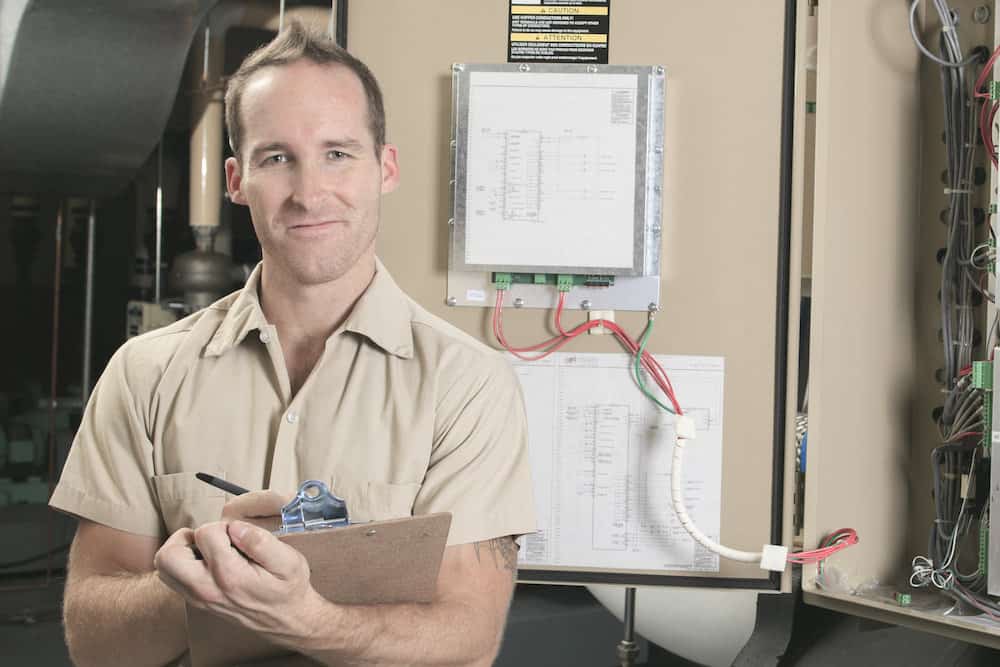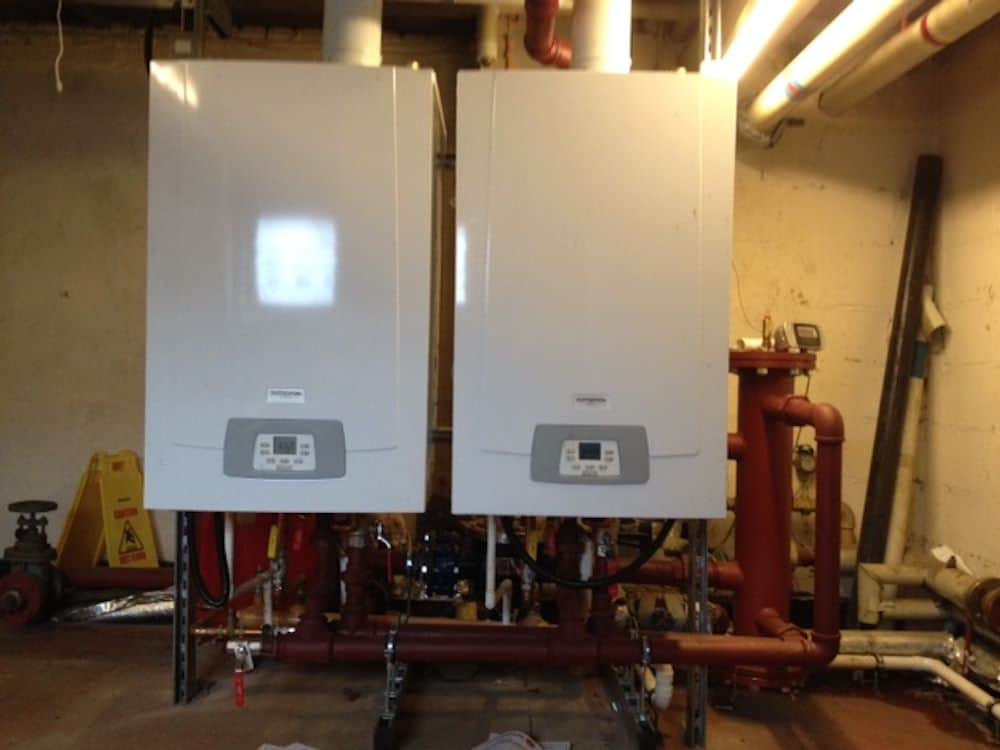
If you’re paying for a commercial boiler service are you sure you’re actually getting a commercial boiler service?
This is a slightly tough subject to raise, as it’s one the entire industry know about, but aren’t saying much, as the prices being paid for servicing in the consumer sector are falling through the floor. We can see this having an early effect in the commercial sector and it worries us.
Is a £45 boiler service possible?
By the time you drive to site, strip the unit down, clean, test and complete the certification – And pay a highly qualified engineer to do the work?

The obvious and very clear answer is no.
So how are they doing it, using apparently qualified engineers?
The answer is simple.
Most boiler services that you pay for don’t involve servicing the boiler.
We’re not going to call it fake maintenance, as it’s technically being done within guidelines.
In short, rather than a strip down service, it is just a simple combustion analysis and testing being carried out, which SOME manufacturers and domestic gas-safe regulations allow. If the level of CO/CO2 ratio is outside of tolerance, and only then, will a strip down service be carried out.
It doesn’t mean your boiler is necessarily unsafe. Far from it. They’ve been tested to show they are running within the manufacturers’ guidelines and your family, customers or staff are not at risk. If you’re a commercial landlord, you’ll even get a gas safety certificate to prove this.
 But your commercial boiler won’t be serviced. It will just be tested.
But your commercial boiler won’t be serviced. It will just be tested.
Our problem with this is twofold.
Firstly, many maintenance companies see this as a green light to charge a customer for the time of a genuine strip-down service visit of old, when in fact engineers are on-site for a fraction of the time and simply testing the CO/CO2 ratio is safe and the appliances safety devices.
Secondly, if you don’t maintain things, they will break. Sooner rather than later. Our business has been built on installing things to the right specification and then maintaining them to the right specification too. Since 1963. We’re probably quite traditional in that we believe things need maintaining. A boiler shouldn’t be disposable. It has been designed to last for 20 years or more, so it needs maintenance to have a chance of reaching this milestone.
But, in the consumer boiler world, that isn’t really our operating space, more and more boilers are effectively sealed for life. They apparently don’t need servicing. They just need an annual check to ensure they are running right.
There’s a direct parallel in the car industry. In the 90’s and 00’s Fleet Managers were pressurising manufacturers to minimise maintenance for the period they ran the cars. Suddenly, gearboxes were sealed for life. Everyone knew they would break at around seven years or 100,000 miles. By then however the fleet owners were long gone and warranties had expired. It was over to us poor consumers to pay the price.
But servicing makes sense. How is it possible for an old Volvo from the 60’s to go for 3,000,000 miles on the same gearbox? It’s because it’s been regularly and properly serviced. He’s changed the transmission fluid four times this year alone.
 It is obviously possible to get away without servicing anything mechanical and it will last for some time before it breaks. If you never clean your teeth they may not fall out for a few years, but rest assured, they will fall out, having slowly rotted away in situ.
It is obviously possible to get away without servicing anything mechanical and it will last for some time before it breaks. If you never clean your teeth they may not fall out for a few years, but rest assured, they will fall out, having slowly rotted away in situ.
To understand what can go wrong, we need to explain a little about what is going on inside a boiler.
A conventional gas boiler mixes air and gas at a ratio of around 12-15 to one. It doesn’t need quite this much air, but to be safe and create a flow through the system, it brings in more than it needs and expels the waste out through the flue.
This waste is made up of three main constituents. Oxygen, Carbon Dioxide and Carbon Monoxide.
The air we breathe is only around 21% oxygen with the rest being mainly Nitrogen and a little Argon. So when it’s burnt inside a boiler, there’s normally some leftover. We aim for around 4% Oxygen being expelled, in line with the Gas Safe Regulations.
If the system takes in too much air, it’s running lean and will lower the efficiency but will also potentially cause damage. If there’s too much fuel, compared to the air, it’s running ‘rich’ and this leads to more soot, higher emissions and more Carbon Monoxide being produced.
Carbon Dioxide is another byproduct and makes up around 8.5-10% of the flue gas with many boiler manufacturers. If it’s left unchecked (or unserviced) then Carbon Dioxide mixes with water in the system and forms Carbonic Acid. This will eat its way through pipework, flues and pretty much anything in its path. This is obviously a bad thing.
But the greatest danger to life is with Carbon Monoxide. It’s odourless, colourless, heavier than air and deadly. If your system is leaking, it will sink to the floor and rise up slowly to kill you. It’s caused when the gas doesn’t fully burn and is so deadly that its presence is measured in Parts Per Million. The figure we aim at here is as close as possible to zero.

A standard ‘service’ from our friends at a large Gas provider that now delivers fixed price ‘maintenance’ doesn’t involve taking a single part off your boiler in order to provide the service. What they do instead is stick a probe in the flue and read what the output is.
Normally, you should run a boiler for 10-15 minutes to ensure the flame is balanced and the system is at temperature. But there’s no time for that here.
If the probe says you’re within tolerance, that’s it. You’re good to go. Safe for another year. The moment they take the cover off or investigate anything is the moment they lose money. They simply can’t do this if they are ‘servicing’ 15-20 boilers a day. It takes them longer to write out the bits they need on the certificate and sign it than it does to complete the check.
Rest assured, this will end in tears.
Consumer boilers, even in a busy household, may run for an hour or two a day at the most. If we assume a seven-year life, that’s still only 5,000 hours of running. If you drove a car for 5,000 hours you’d probably travel around 200,000 miles. It would need a service at some point in that, however many times you shove a probe up its exhaust.
A commercial boiler will work much, much harder. As many as 20 hours per day with an average life in our experience of nearer 20 years. That’s 146,000 hours. To use the same 40mph car analogy, that’s 5.84 million miles. To deliver that, It’s going to need a service or two, in order to keep running right.
We can see the market dividing.
Those who service boilers and those who simply test them.
You pay your money and take your choice.
But for us, there is no choice. If you want your boiler to last, make sure it’s being serviced properly.
And not just probed.
If you would like to discuss any of our services, please call 0151 343 1963 or complete the form below and we will be in touch shortly.